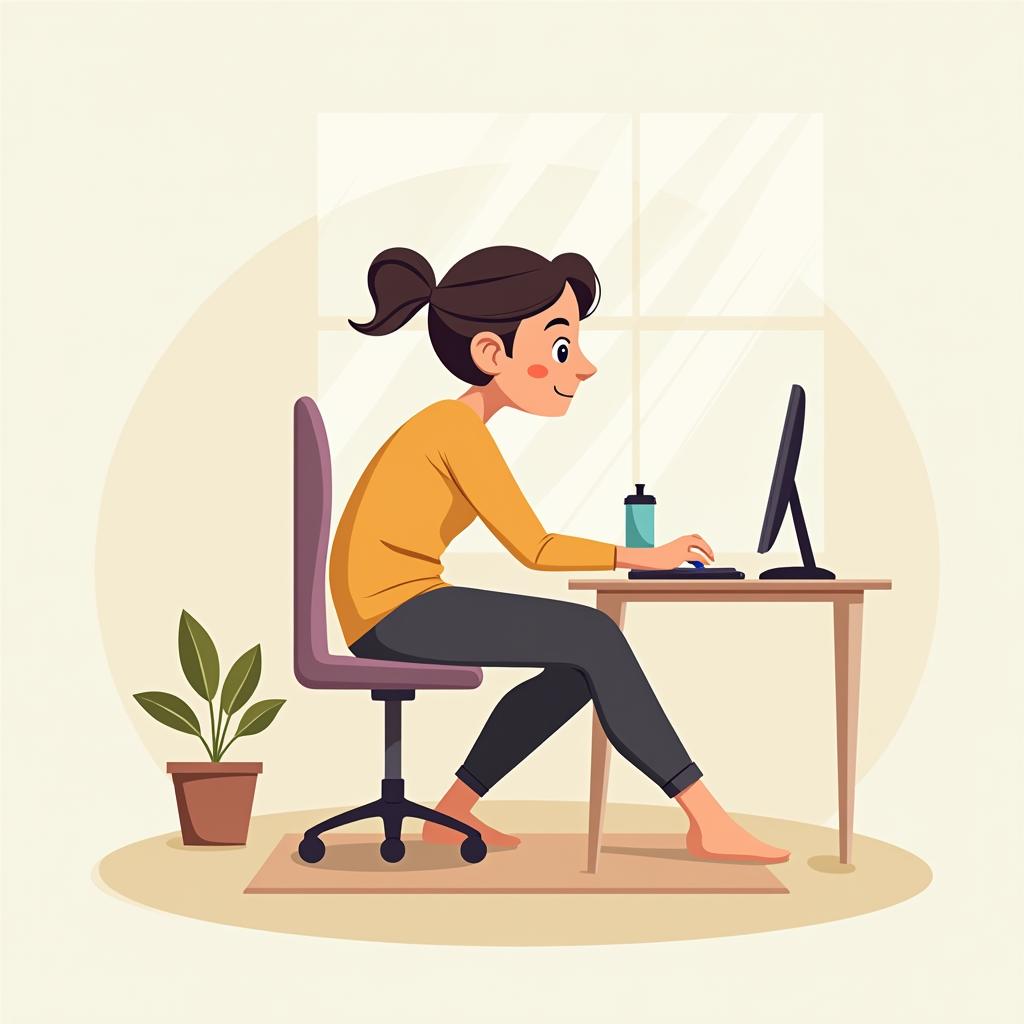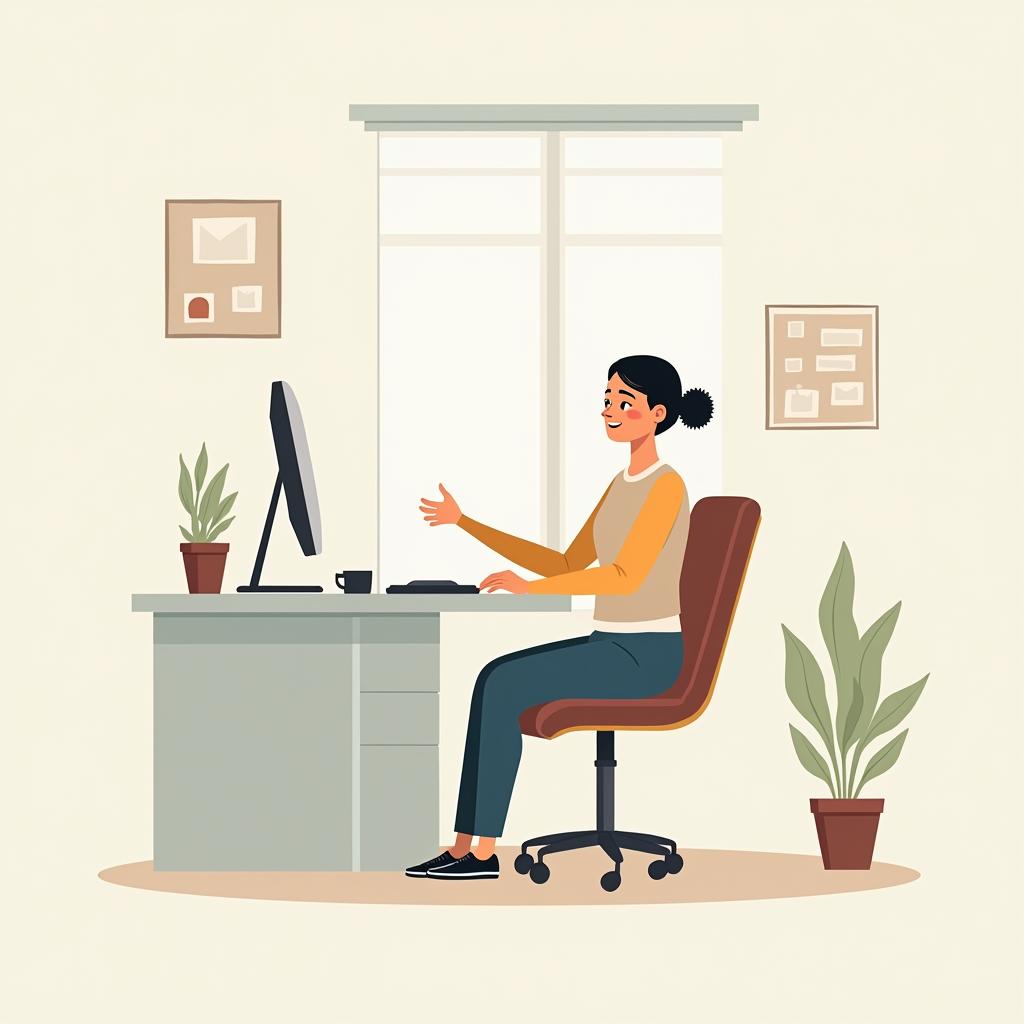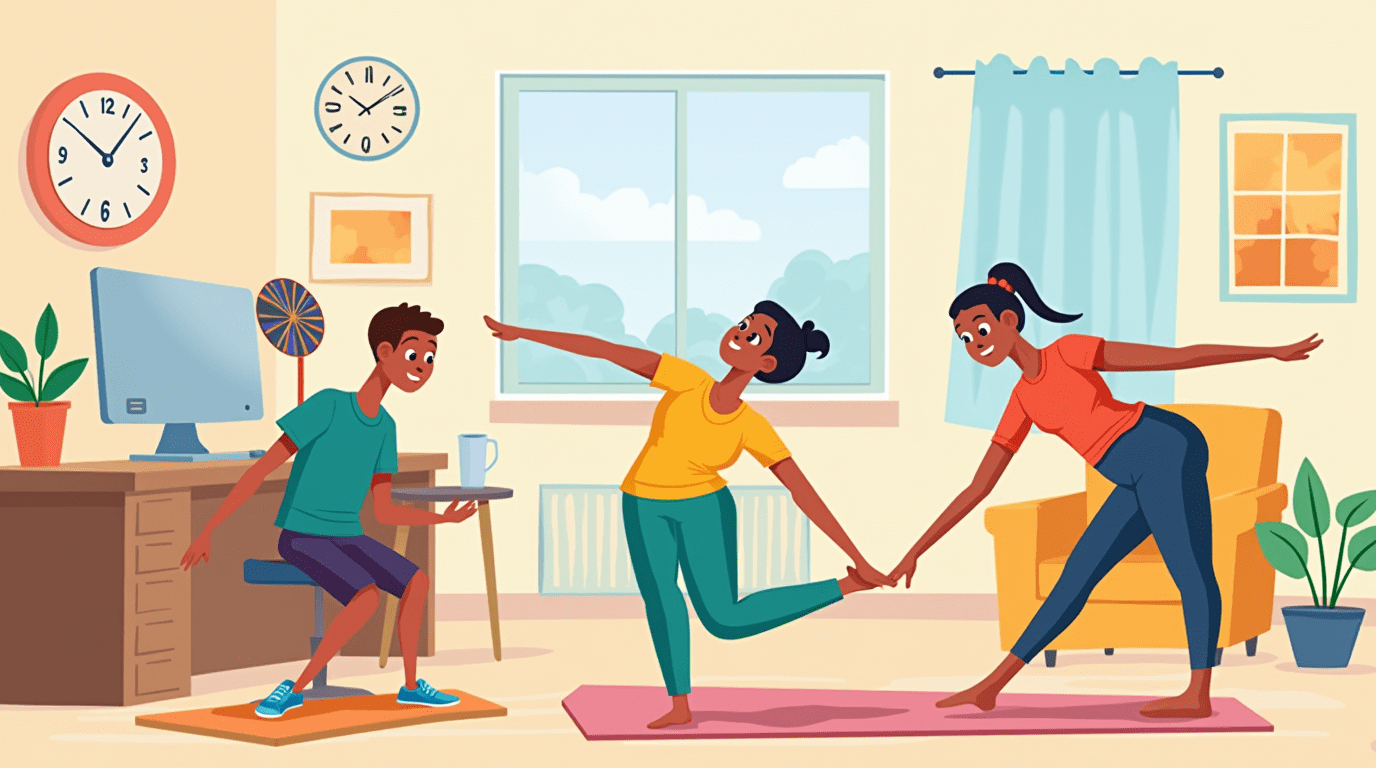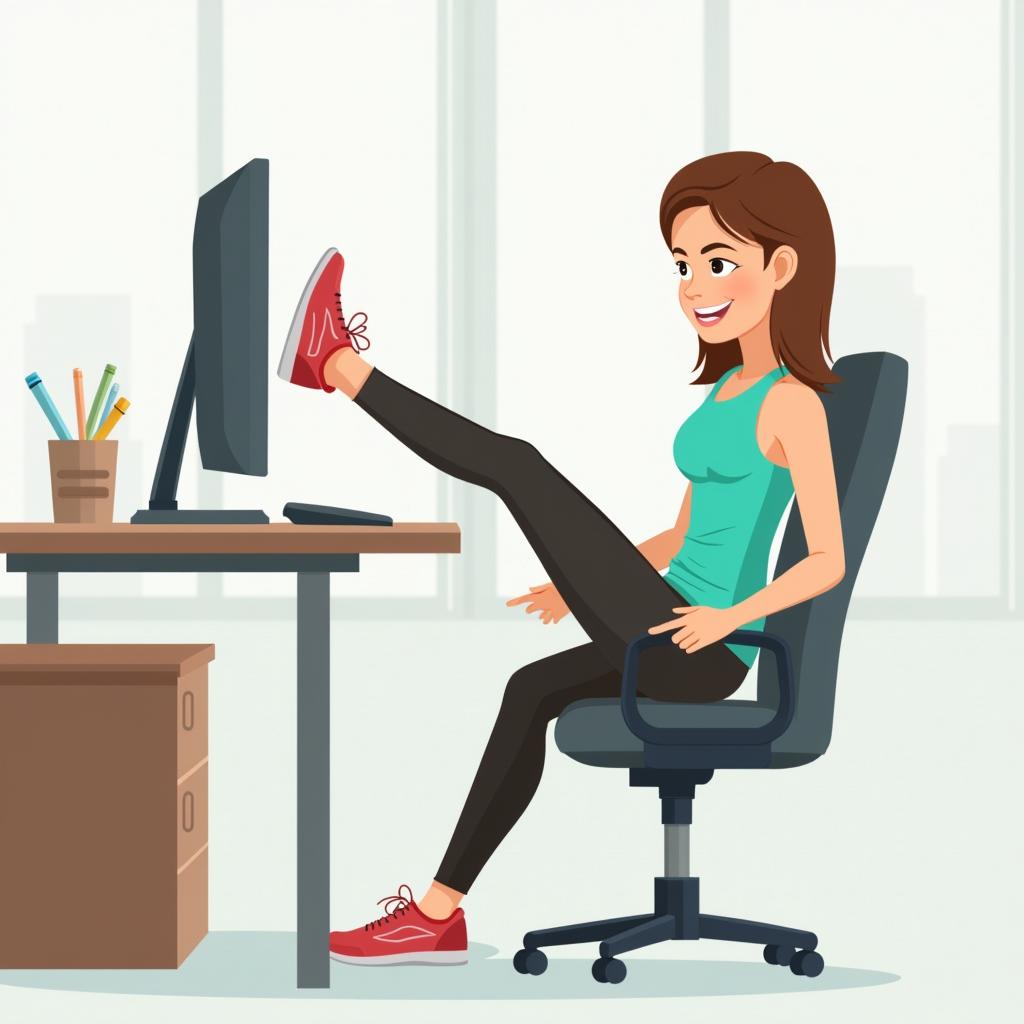Understanding the Benefits of Desk Yoga
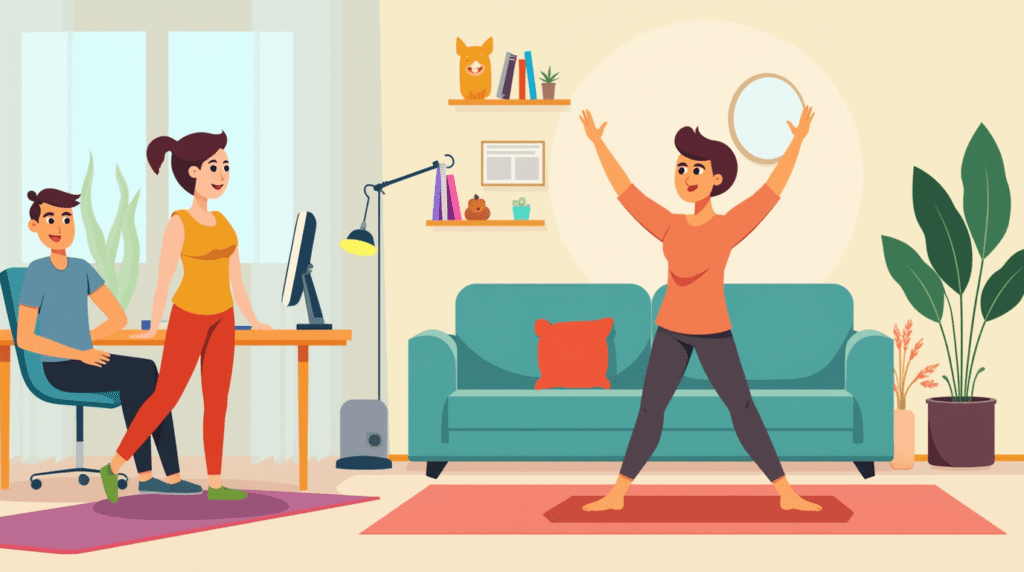
Why Stretching Matters
Sitting for prolonged periods can lead to muscle tension, poor posture, and overall discomfort. When you stretch, you stimulate blood circulation and help alleviate these issues. Studies have demonstrated the benefits of regular stretching, which may include:
- Reduced muscle aches and discomfort
- Improved flexibility and posture
- Enhanced circulation and energy levels
Mental Health Benefits
Beyond the physical advantages, desk yoga can significantly improve your mental well-being. Incorporating yoga into your daily routine has been linked to:
- Lower stress levels
- Better focus and concentration
- Decreased anxiety and improved mood
Research shows that practicing mindfulness through yoga can lead to increased productivity and clarity in thought, making it a worthwhile addition to your day.
Getting Started with Desk Yoga
Creating Your Space
A clutter-free workspace is essential for effective desk yoga practice. Make sure your desk area is tidy, allowing you to focus fully on your stretching routine. You don’t need fancy props; your chair and desk will serve perfectly! Clear any distractions and create an inviting nook for your yoga.
Safety First: Listening to Your Body
As a beginner, it’s crucial to ease into these poses and always listen to your body. If you feel discomfort, don’t hesitate to stop or modify the pose. Pay close attention to what feels right for you; yoga is about personal growth and self-care.
Quick Desk Yoga Poses for Beginners
Shoulder Rolls and Neck Stretches
These simple movements are perfect for releasing tension in your shoulders and neck.
How to Do It:
- Sit up straight with your feet flat on the floor.
- Roll your shoulders forward in a circular motion for five rolls.
- Then roll them backward for another five rolls.
- Next, gently tilt your head to the right, bringing your ear towards your shoulder. Hold for a few breaths and switch sides.
Benefits:
These stretches help alleviate tension and promote relaxation in your upper body.
Cat-Cow Stretch
This gentle spinal movement engages your back muscles and helps relieve tightness.
How to Do It:
- While seated, place your hands on your knees.
- Inhale, arch your back, and look up (Cat pose).
- Exhale, round your back, and tuck your chin towards your chest (Cow pose).
- Repeat three to five times.
Benefits:
This stretch increases flexibility, reduces back pain, and enhances spinal mobility.
Seated Forward Bend
This pose promotes a deep stretch for your back and hamstrings.
How to Do It:
- Sit tall in your chair, feet flat on the floor.
- Inhale and raise your arms overhead.
- Exhale and hinge at your hips, lowering your upper body toward your feet.
- Let your arms dangle or grasp your ankles gently. Hold for a few breaths.
Benefits:
This stretch releases back tension and encourages a sense of relaxation.
Wrist and Finger Stretches
Combat the discomfort caused by constant typing with these easy stretches.
How to Do It:
- Extend your right arm in front of you, palm facing up.
- With your left hand, gently pull back on your fingers to feel a stretch in your wrist.
- Hold for a few breaths and switch sides.
- Additionally, flex and stretch each finger individually to increase circulation.
Benefits:
This exercise alleviates strain from typing and promotes better hand health.
Standing Side Stretch
This is a fabulous stretch to open the side body.
How to Do It:
- Stand up, placing your feet shoulder-width apart.
- Inhale as you reach both arms overhead.
- Exhale and lean to the right, feeling a stretch along your left side.
- Hold for a few breaths, return to center, and switch sides.
Benefits:
This stretch enhances lateral mobility and alleviates tension in the torso.
Desk Chakra Release
This pose is excellent for promoting digestion while relieving lower back stress.
How to Do It:
- While seated, place your hands on your desk for support.
- Inhale, twist to the right, and gaze over your shoulder.
- Hold for a few breaths, then return to center and repeat on the left side.
Benefits:
This pose helps release tension in the lower back and improves digestion.
Incorporating Desk Yoga into Your Routine
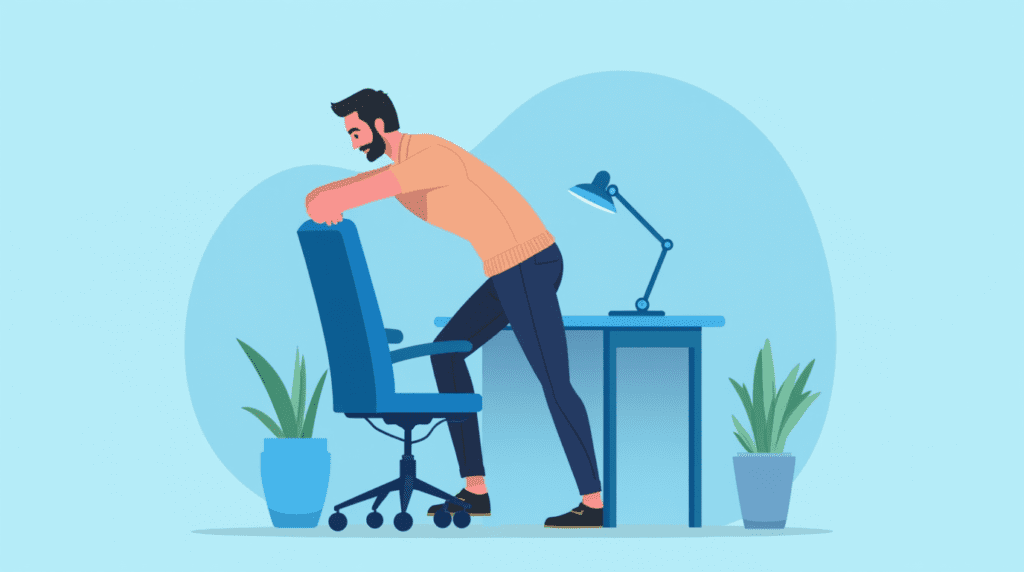
Setting Reminders
To make desk yoga a habit, consider setting reminders. You can use apps or timer alerts to prompt you to stretch throughout the day. Aim to take a break every hour, or whenever you finish a meeting, to engage in a quick yoga session.
Building a Routine
Start with short five-minute sessions to ease into the practice. Gradually, you can increase the duration and frequency. Combining stretches with deep breathing will enhance relaxation and rejuvenate your mind.
Sharing the Joy
Why keep these stretches to yourself? Invite your coworkers to join you! Whether it’s a quick stretch session during a break or leading a group session, sharing desk yoga can foster teamwork and camaraderie.
Conclusion: Embrace Desk Yoga for Beginners for a Healthier Work Life
Desk yoga for beginners is a simple yet powerful way to improve your overall well-being. It not only alleviates physical tension and enhances flexibility but also supports your mental health by reducing stress and boosting focus. By weaving these easy stretches into your daily routine, you can create a healthier, more balanced approach to work.
So, why not start today? Try a single pose and pay attention to the difference it makes in how your body feels. Your path to a more relaxed, energized, and productive workday begins with one small stretch—right at your desk!
